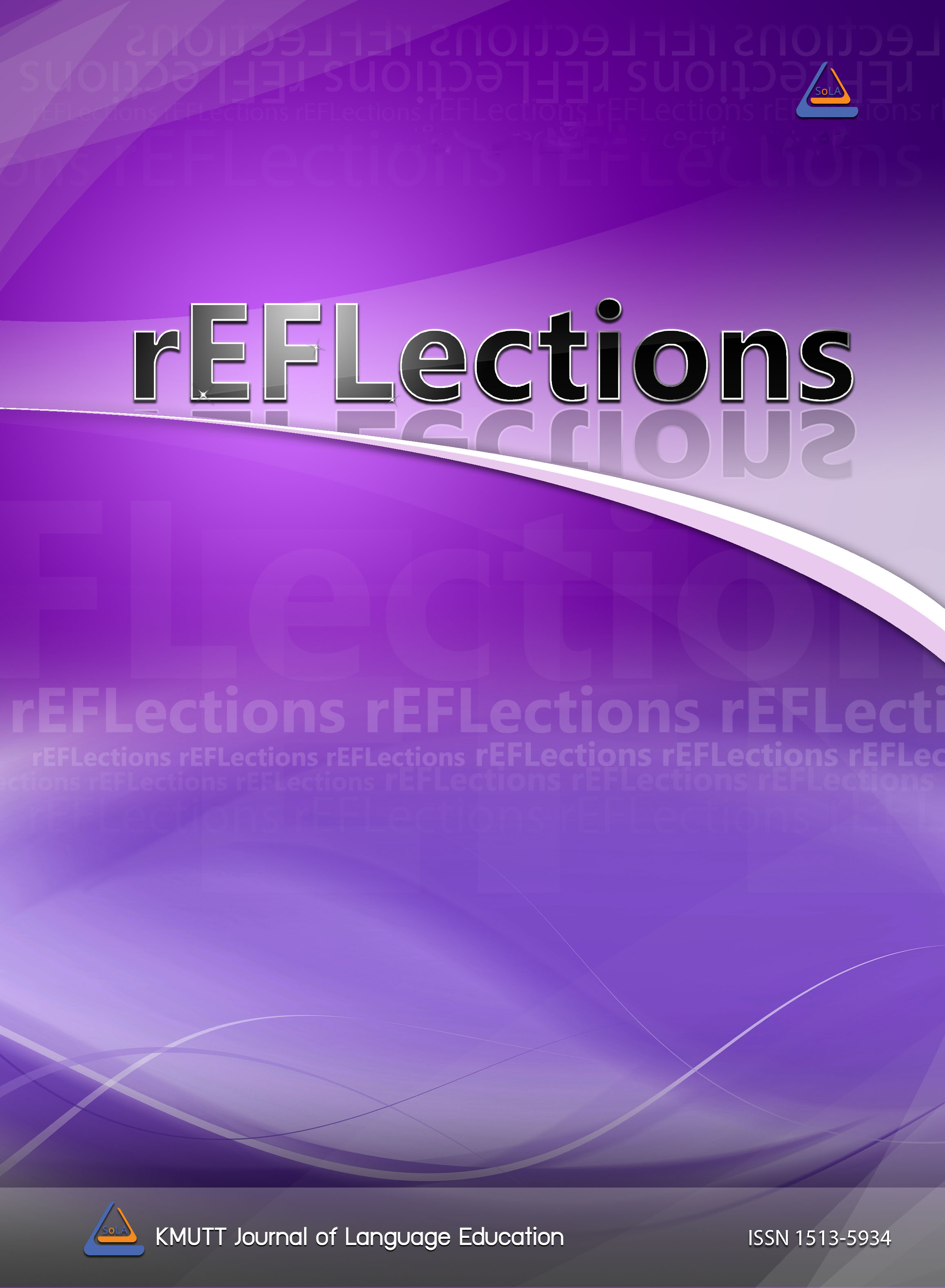The Development of English Grammar for Teachers Coursebook
Main Article Content
Abstract
Coursebooks exist all over in the world of education. They are generally used as one of the major course materials. To write a coursebook for a particular course is challenging. This study was purposively conducted to develop an English grammar coursebook for teachers to meet the needs of teacher students in English education programs. The study was based on research and development (R&D) with three phases conducted through mix-methods research. In Phase 1, 60 experienced teachers and 226 current teacher students responded to questionnaires that were used to investigate the needs for English grammar topics. 16 grammar topics that were important to Thai teacher students of English were discovered. In Phase 2, 31 participants volunteered themselves in a 16-week data collection process. The coursebook was finally developed and composed of 14 chapters including grammar content knowledge, and a variety of exercises including preferable book layouts evaluated by teacher students’ needs. In the final phase, Phase 3, three experts contributed by offering their suggestions and recommendations when editing the complete version of the coursebook. The study also found that the coursebook could facilitate learners of all proficiency levels: beginner, intermediate, and advanced, helping them improve their grammar proficiency by a step higher. Ultimately, the study helped illustrate some alternative ways for teachers, lecturers, and authors to compose a coursebook by using a research-based coursebook development process.
Article Details

This work is licensed under a Creative Commons Attribution-NonCommercial-NoDerivatives 4.0 International License.
References
Andarab, M. S. (2019). The content analysis of the English as an international-targeted coursebooks: English literature or literature in English? Cypriot Journal of Educational Sciences, 14(1), 69–79.
Arakkitsakul, Y. (2019). Five things that Thai teachers have to consider before teaching English grammar. Journal of Southern Technology, 12(2), 257-263. https://so04.tci-thaijo.org/index.php/journal_sct/article/view/153086
Azizifar, A., Koosha, M., & Lotfi, A. R. (2010). An analytical evaluation of locally produced Iranian high school ELT textbooks from 1970 to the present. English Language Teaching, 3(4), 132-141. https://doi.org/10.5539/elt.v3n4p132
Iamsirirak, E. (2021). A development of English grammar proficiency test for teacher students majoring in English. Proceedings of the Humanities and Social Sciences in Face of Concurrent Disruptions, 13, 1-16. https://sites.google.com/psu.ac.th/13ichiss-proceedings
Izzet, S. (2020) The investigation into the dependency of level of Turkish language teachers on coursebooks. European Journal of Education Studies, 7(5), 163-174. https://doi.org/10.5281/zenodo.3842656
Jafarigohar, M., & Ghaderi, E. (2013). Evaluation of two poplar EFL coursebooks. International Journal of Applied Linguistics and English Literature, 2(6), 194-201. https://doi.org/10.7575/aiac.ijalel.v.2n.6p.194
Krashen, S. D. (1981). Principle and practice in second language acquisition. Pergamon Press Inc. http://www.sdkrashen.com/content/books/sl_acquisition_and_learning.pdf
Masuhara, H. (2006). The multi-dimensional awareness approach to content teaching. In J. Mukundan (Ed.), Focus on ELT materials (pp. 1-11). Pearson/Longman.
McDonough, J., & Shaw, C. (2003). Materials and methods in ELT (2nd ed). Singapore: Blackwell Publishing.
Nourmohammd-Nouri, N., Ghemi, F., & Sedigh R. (2015). “English Result” the qualitative and quantitative analysis of course books as perceived by Iranian EFL learners and teachers. Procedia – Social and Behavioral Sciences, 192, 601-614. https://doi.org/10.1016/j.sbspro.2015.06.106
Phongsirikul, M. (2017). A learner of the 20th century becoming a teacher of the 21st century: A perspective on the goals of ELT in Thailand. Reflections, 24, 81–94. https://so05.tci-thaijo.org/index.php/reflections/article/view/112295
Purwanti, A. (2019). Evaluation on an ESP course book: Get along with English for the hotel industry. Journal of English Educators Society, 4(2), 107-116. https://doi.org/10.21070/jees.v4i2.2432
Watcharapunyawong, S., & Usaha, S. (2013). Thai EFL students’ writing errors in different text types: The interference of the first language. English Language Teaching, 6(1), 67-78. http://dx.doi.org/10.5539/elt.v6n1p67
Zohrabi, M. (2011). Coursebook development and evaluation for English for general purposes course. English Language Teaching, 4(2), 213-222. https://doi.org/10.5539/elt.v4n2p213


